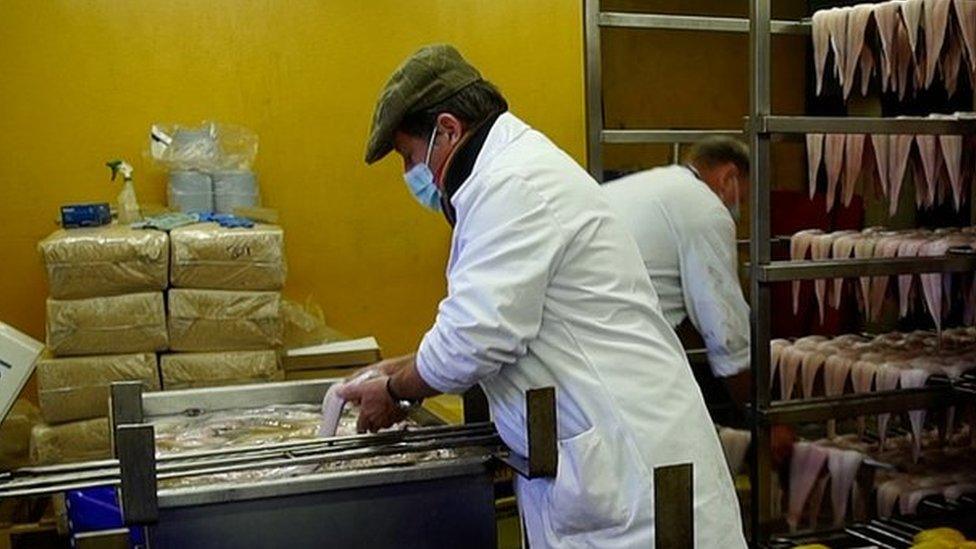£3.6bn struggling English towns fund 'not impartial', say MPs
- Published
- comments
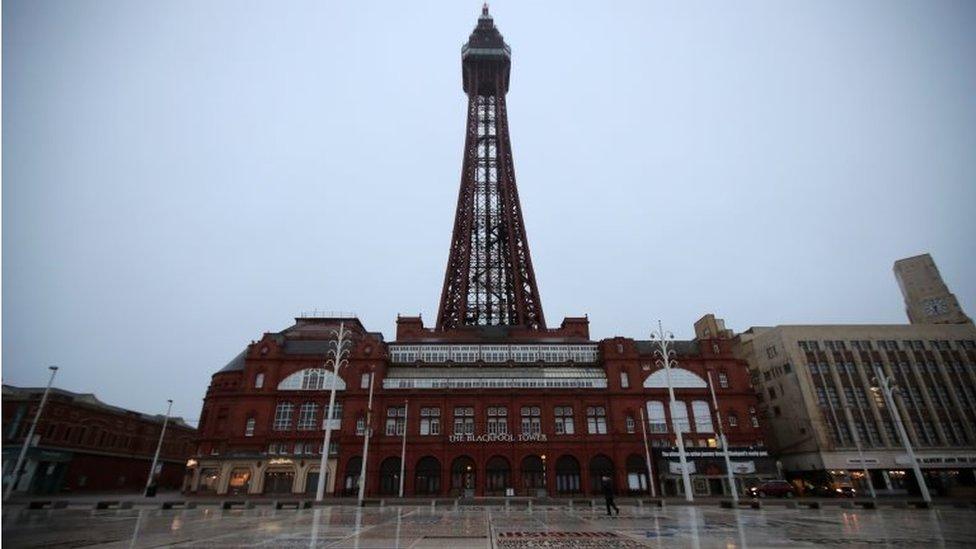
Blackpool is one of the towns awarded money by the towns fund
The government's process for choosing towns in England to benefit from a £3.6bn fund was "not impartial" a group of MPs have said.
The scheme was originally launched in 2019 to boost struggling towns.
But the Commons spending watchdog warned that a "lack of transparency" over how money has been awarded could "fuel accusations of political bias".
The Ministry of Housing and Communities said the selection process was "comprehensive, robust and fair".
Money from the Towns Fund is aimed at "places with proud industrial and economic heritage" but which have not "always benefitted from economic growth in the same way as more prosperous areas", the government has said.
In September 2019 it published a list of the 100 towns, external that would benefit from the fund. Beneficiaries included Blackpool, Grimsby, St. Ives and Hastings.
Communities Secretary Robert Jenrick came under fire last month when it was announced that his constituency would receive £25m from the fund.
Mr Jenrick told the BBC that the decision to give the money to Newark, Nottinghamshire, had been taken by then-Northern Powerhouse Minister Jake Berry.
He said he had himself decided to grant funds to a town in Mr Berry's constituency under the same scheme.
'Misuse of money'
Labour called the process "murky" but Mr Jenrick said it was "perfectly normal" and insisted he had had no involvement in the decision to select Newark as one of the beneficiaries.
Shadow communities secretary Steve Reed said the committee's report "raises yet more questions about the government's misuse of taxpayers' money".
"Scandal-prone Robert Jenrick deprived more deserving towns of funding so he could funnel it into Conservative target seats ahead of the general election," he added.
"The secretary of state must now publish the Accounting Officer's findings because the public deserve to know if their money was used to benefit the Conservative Party instead of the struggling towns and high streets it was intended for."
In its report, the Public Accounts Committee said it was "not convinced by the rationales for selecting some towns and not others", adding that justifications offered by ministers were "vague and based on sweeping assumptions".
It also said some towns were picked by ministers "despite being identified by officials as the very lowest priority".
"This lack of transparency has fuelled accusations of political bias in the selection process, and has risked the civil service's reputation for integrity and impartiality," the report said.
The committee said the communities department should be transparent about how funding decisions were reached in order "to avoid accusations that government is selecting towns for political reasons".
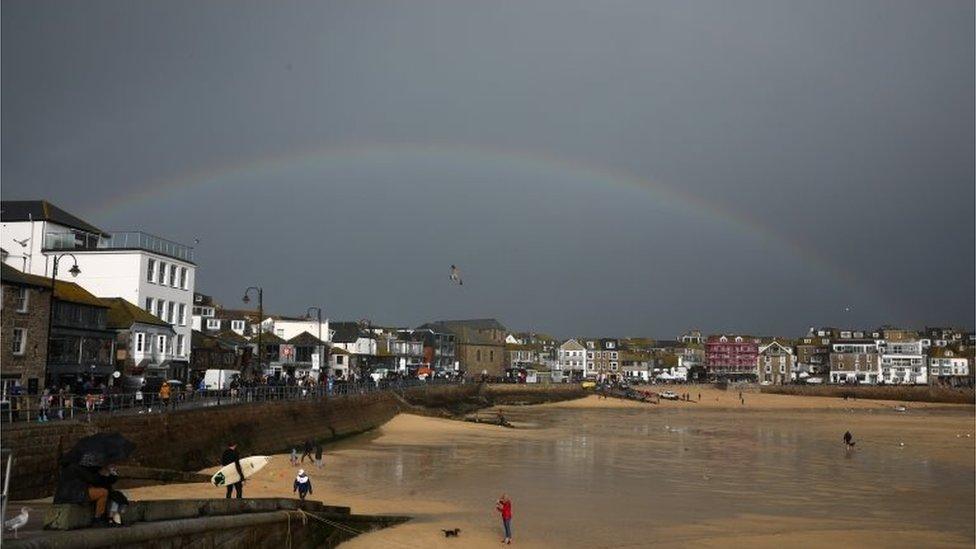
St. Ives will use part of the Towns Fund money to build a new skate park
As part of the selection process, ministers picked towns from a pool of 541 places which had been ranked by officials based on local need and growth potential.
Ministers chose all 40 "high-priority" towns, then selected a further 60 places from the low and medium priority categories.
Twelve low-priority areas were selected over medium-priority towns including one town ranked 536th out of 541, the committee noted.
The government said it completely disagreed with the criticism of the criteria used to award the money, saying factors such as the number of people without formal qualifications or a job were taken into account.
"The Towns Fund will help level up the country, creating jobs and building stronger and more resilient local economies," a spokesman for the Ministry of Local Government. Communities and Housing said.
- Published11 October 2020
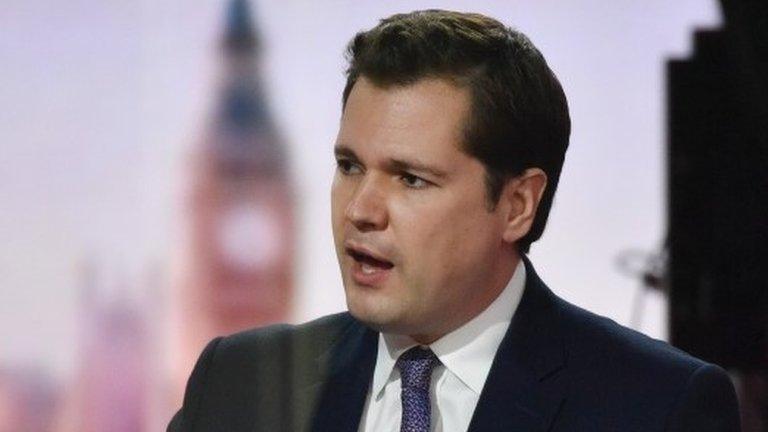
- Published5 October 2020
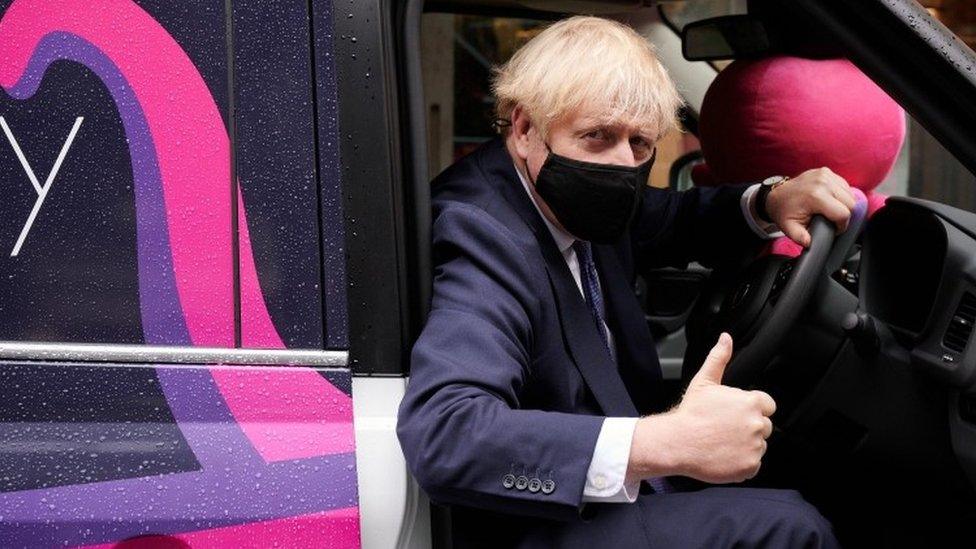
- Published29 October 2020
